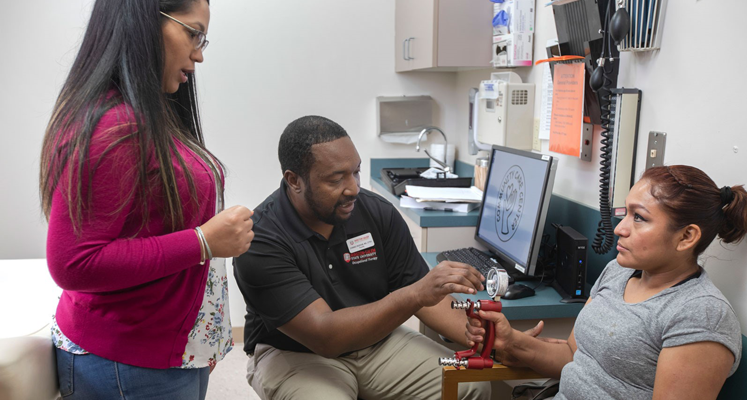Courtesy of Winston-Salem State University
Occupational therapy involves the use of assessment and intervention to develop, recover, or maintain the meaningful activities, or occupations of individuals. All-to-often though, a key tool is missing for occupational therapists: mental health training.
And mental health is a primary disrupter of one’s day-to-day life.
Winston-Salem State University is on a mission to change that deficiency in the training of occupational therapists.
In 2019 WSSU introduced a one-of-a-kind mental health concentration program in occupational therapy to aid the challenges occupational therapists face treating clients with mental health issues. The Master’s level Mental Health Concentration Program in Occupational Therapy produced its first two graduates last December.
“This program is to help occupational therapy students gain learning experience in mental health so that upon graduation each student feels comfortable working with someone with mental health issues,” said Chinyu Wu, Ph.D., associate professor of occupational therapy at WSSU and founder of the new program.
“Our occupational therapy program at Winston-Salem State is the first one I know of that has a mental health component. We are the only one that has a certification program.”
To further complicate matters, many states like North Carolina will not reimburse providers for mental health occupational therapy.
“If you happen to be one of those people with mental illness that need occupational therapy, the state won’t pay (in North Carolina),” said Wu. “This is the treatment disparity we are talking about. If people have physical health needs for occupational therapy, it is paid for.
Wu says progress is being made in the direction of recognizing the need for mental health inclusion in occupational therapy. Recently the Commonwealth of Virginia made it reimbursable, and progress is being made in North Carolina.
“Hopefully we can help people understand that mental health is a very complicated health condition, that if we are taking care of our people, that we are making the right services available to our people and that we’re not making cost the primary driver.
“We hope people that are in those positions, that have the influence and make these decisions are thinking the same and will make the right decisions.”
The Mental Health Concentration Program in Occupational Therapy program guides occupational therapy students to take a track of courses that will build competencies for practice in mental health while going through the occupational therapy program. Its object is to produce occupational therapy graduates with the entry-level competence to practice in mental health.
“This offers exposure to mental health problems. Any student who enrolls in it must complete a clinical rotation involving direct interaction with mental illness,” said Wu, who is the co-chair of the mental health special interest section of the North Carolina Occupational Therapy Association (NCOT).
“People in leadership of the state occupational therapy organization are working toward payment reimbursement for occupational therapy mental health services. We would like to make sure when we get to that point, we have graduates that are ready. This is my mission, to help our graduates be prepared even though the policy may not be ready.”





